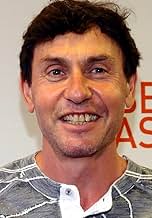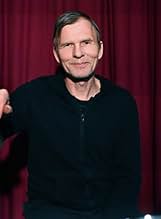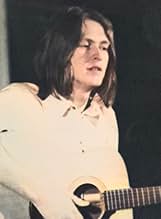Pola X
A young writer becomes intrigued with a mysterious dark-haired woman who claims to be his long-lost sister, starting an unusual relationship with her and prompting a downward spiral involvin... Read allA young writer becomes intrigued with a mysterious dark-haired woman who claims to be his long-lost sister, starting an unusual relationship with her and prompting a downward spiral involving his domineering mother and lovely fiancée.A young writer becomes intrigued with a mysterious dark-haired woman who claims to be his long-lost sister, starting an unusual relationship with her and prompting a downward spiral involving his domineering mother and lovely fiancée.
- Awards
- 2 wins & 2 nominations total
Featured reviews
The son of a deceased diplomat of some note, Pierre (Guillaume Depardieu) lives in splendor in rural France, in a manor house with his widowed mother (Catherine Deneuve). Things are going well for young Pierre: a novel he has written has become a bestseller and he is engaged to the lovely Lucie (Delphine Chuillot). But then he encounters a mysterious woman named Isabelle (Yekaterina Golubeva) who tells him in broken French that she is his half-sister, born to Pierre's diplomat father and an unknown Balkan woman. Isabelle is in fact less a character and more a spectral presence that haunts Pierre's life. Intrigued by this otherworldly creature, Pierre gives up his privileged existence and enters into a vividly depicted bohemianism that brings about his physical and mental decline.
POLA X prefers to tell its story more through visceral images than dialogue. In fact, the dialogue is deliberately stilted, allowing the film to dip in and out of its basis in Melville's 19th-century novel. So much of the story of Pierre's decline is told through the bucolic idyll of the first half of the film and the brutal squalor he later chooses. This imagery is so strong that even if POLA X feels somewhat too tentative about itself to rank as one of the all-time greatest films, it has haunted this viewer's thoughts since watching it.
Another nice touch of POLA X is the close way in which Carax worked with the composer of the film's score Scott Walker, who was then fresh from his acclaimed album TILT. When Pierre leaves home after meeting Isabelle, he enters into a bizarre community of artists in an industrial setting, who seem to be hiding sinister plans behind their avant-garde work. It is here that Walker's score goes from the subdued strings of the first half of the film into brasher, more aggressive sounds. Carax has set things up so this music is both diegetic and non-diegetic, part of the outside narration of Pierre's psychological decline and contemporary political strife as much as the film's action itself.
And surprise, surprise--for some unfathomable reason Carax deviates from Melville's ending where there are three suicides instead of one as chosen by Carax in the film.
Even then it is a disaster of a film--Catherine Deneuve's time on the screen is the only saving grace.
Understandably, half of the audience applauded as others booed the close of this film. The innovations in sound are remarkable, and locations stunning, but the crawling pace of a youthful cult leader's slow descent and eventual destruction of everyone near to him is arduous business. Thankfully it is broken up by strange twists of circumstance which justify those tortured looks from monolithic Deneuve and Depardeiu. It's just a bit of a shame that such traditional shock elements (an exploding head, a beautifully choreographed motorcycle accident) are precisely what the audience lives for to lift the weight of the rest of the picture. Carax's reply to the press between long drags on a cigarette, "What explicit imagery?" told me the rest of the story.
Did you know
- TriviaPola is an acronym for "Pierre ou les ambiguites," the French translation of the title of the Herman Melville novel on which the film is based.
- Quotes
Margherite: Be careful! You dream of writing a mature work, but your charm lies in your thorough immaturity. You dream of setting fire to God knows what, of rising above your times like a dazzling cloud, leaving everyone terrified and admiring. But you weren't born for that, Pierre! You don't even believe it yourself.
- Crazy creditsAfter credits there's a dedication "à mes trois soeurs" ("for my three sisters").
- Alternate versionsAn alternate longer TV version entitled "Pierre ou les ambiguïtés", edited in 3 one-hour episodes, was shown for the first time on September 24, 2001 on 'Arte', the German-French TV channel. The 3 episodes feature an additional 40 minutes of footage and are titled 'A la lumière' (In the Light), 'A l'ombre des lumières' (In the Shadows of the Lights) and 'Dans le sang' (In the Blood). The TV-version is closer to Carax' original concept, that the film should consist of 3 distinct parts: "The film was thought to be in three parts, three chapters. There's the one chapter in the countryside, called 'In the Light.' I knew this chapter would be light, it would be green and white, green for nature. I dyed all of the actors' hairs blonde and put them in white shirts. (...) So the film is going from light to darkness and rust. (...) So there was a conscious [decision] of going from light to dark, and from 35mm to 16mm." (Sept. 2000) The 3-episodes-TV-version is not only longer, but features different footage. The new sequences explore the dreams of Pierre and his relationship with his mother, sister and fiancée. The 3-episodes-TV-version has not been released on other media yet.
- ConnectionsFeatured in Mr. X (2014)
- SoundtracksLight
Written by Scott Walker
Performed by Orchestre Philharmonique de Paris
Conducted by Jean-Claude Dubois
Christophe Guiot (1st violin)
- How long is Pola X?Powered by Alexa
Details
- Release date
- Countries of origin
- Official site
- Language
- Also known as
- Pierre ou les ambiguïtés
- Filming locations
- Production companies
- See more company credits at IMDbPro
Box office
- Budget
- FRF 71,500,000 (estimated)
- Runtime2 hours 14 minutes
- Color
- Sound mix
- Aspect ratio
- 1.66 : 1
Contribute to this page



![Trailer [OV]](https://m.media-amazon.com/images/M/MV5BNTEwODU0N2QtZTAyOC00MGE1LWJjOWUtYWIxMTAwNTM4ZDJjXkEyXkFqcGdeQWxiaWFtb250._V1_QL75_UX500_CR0)






























